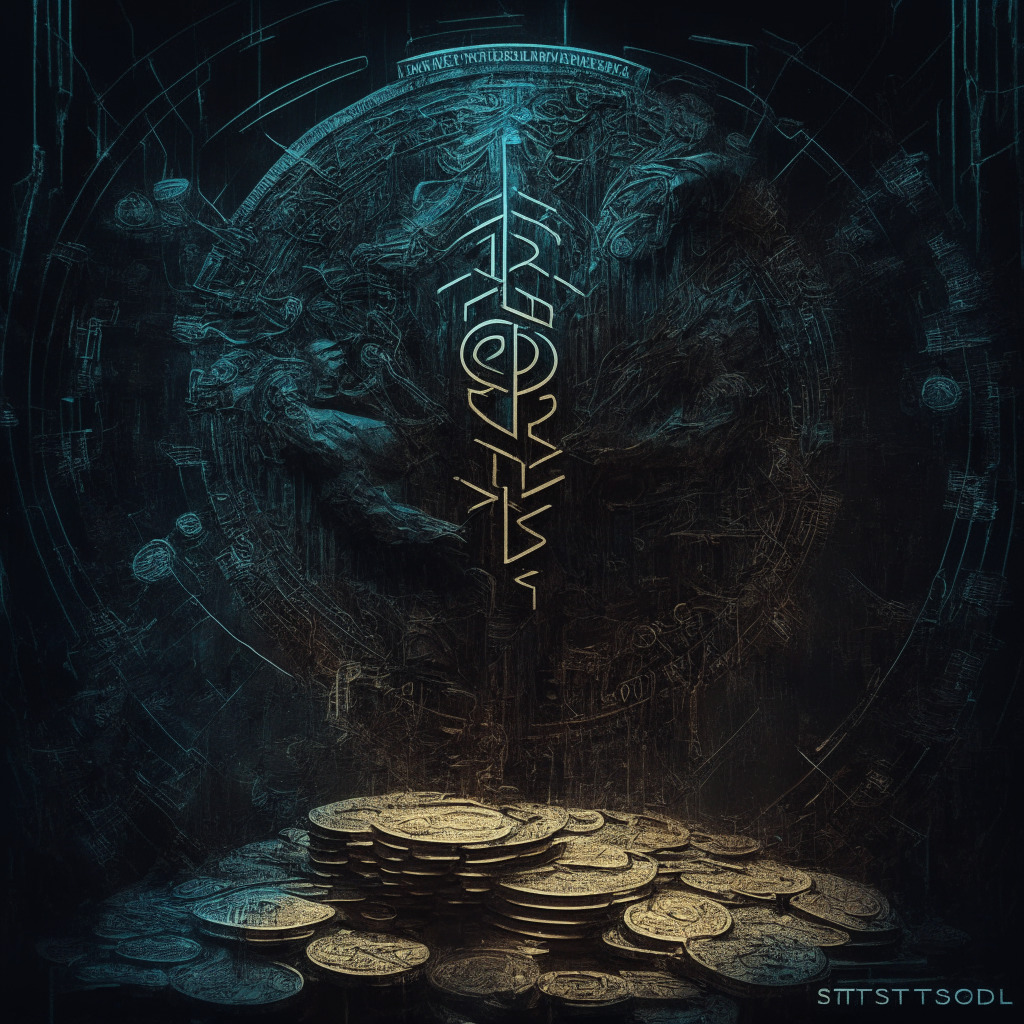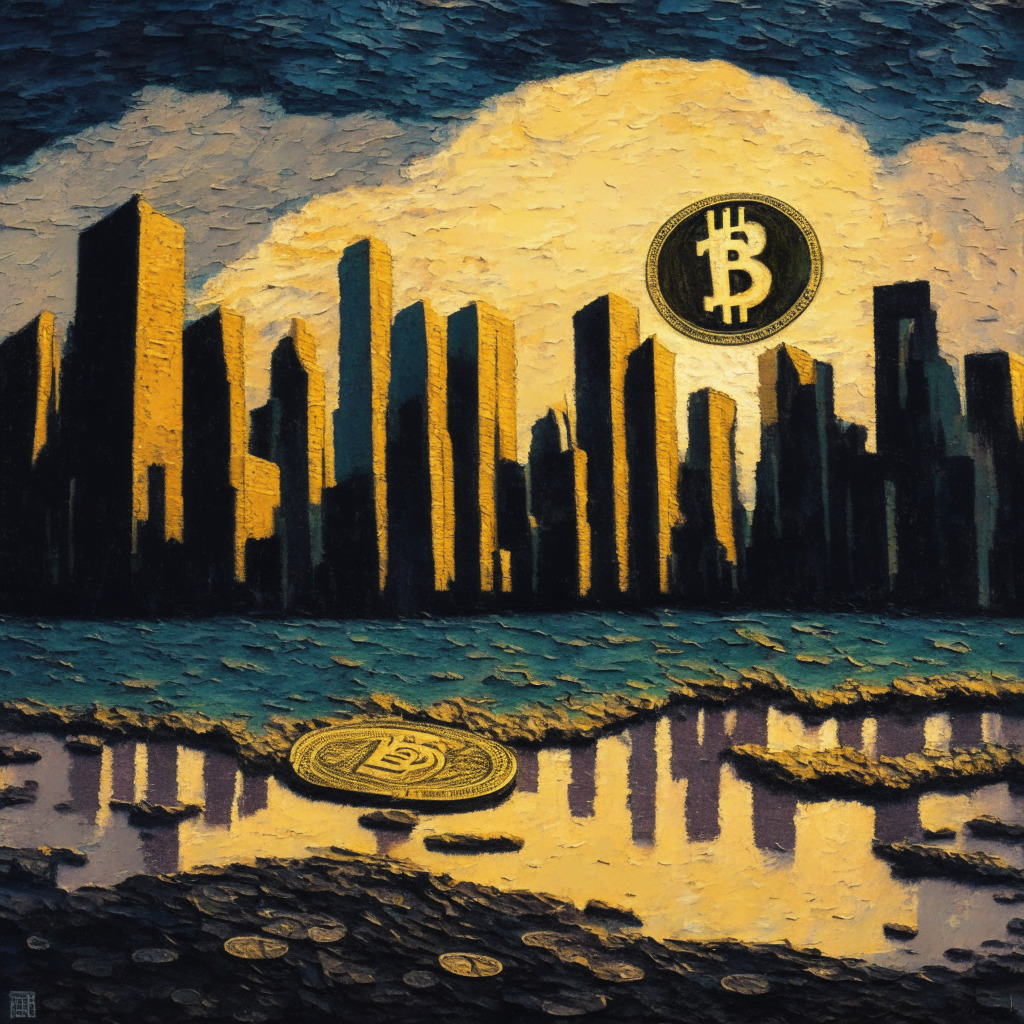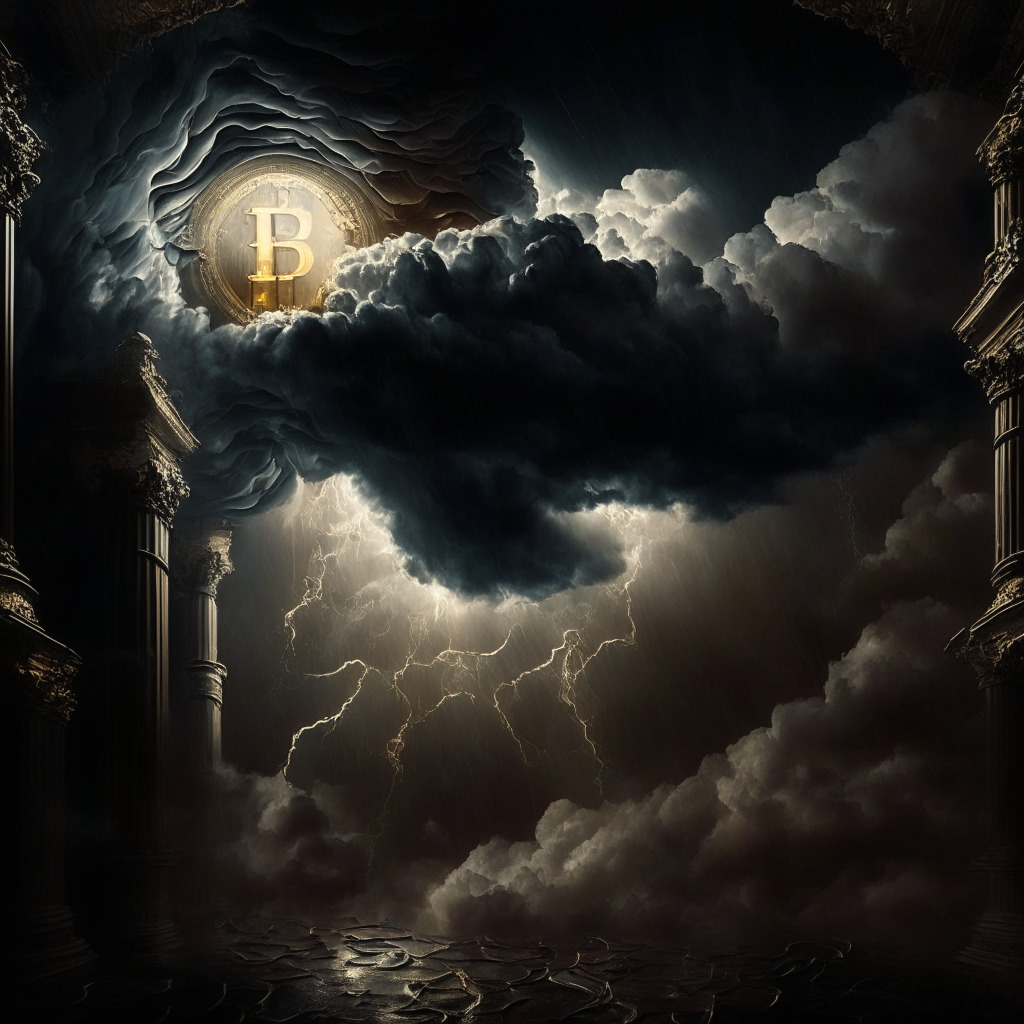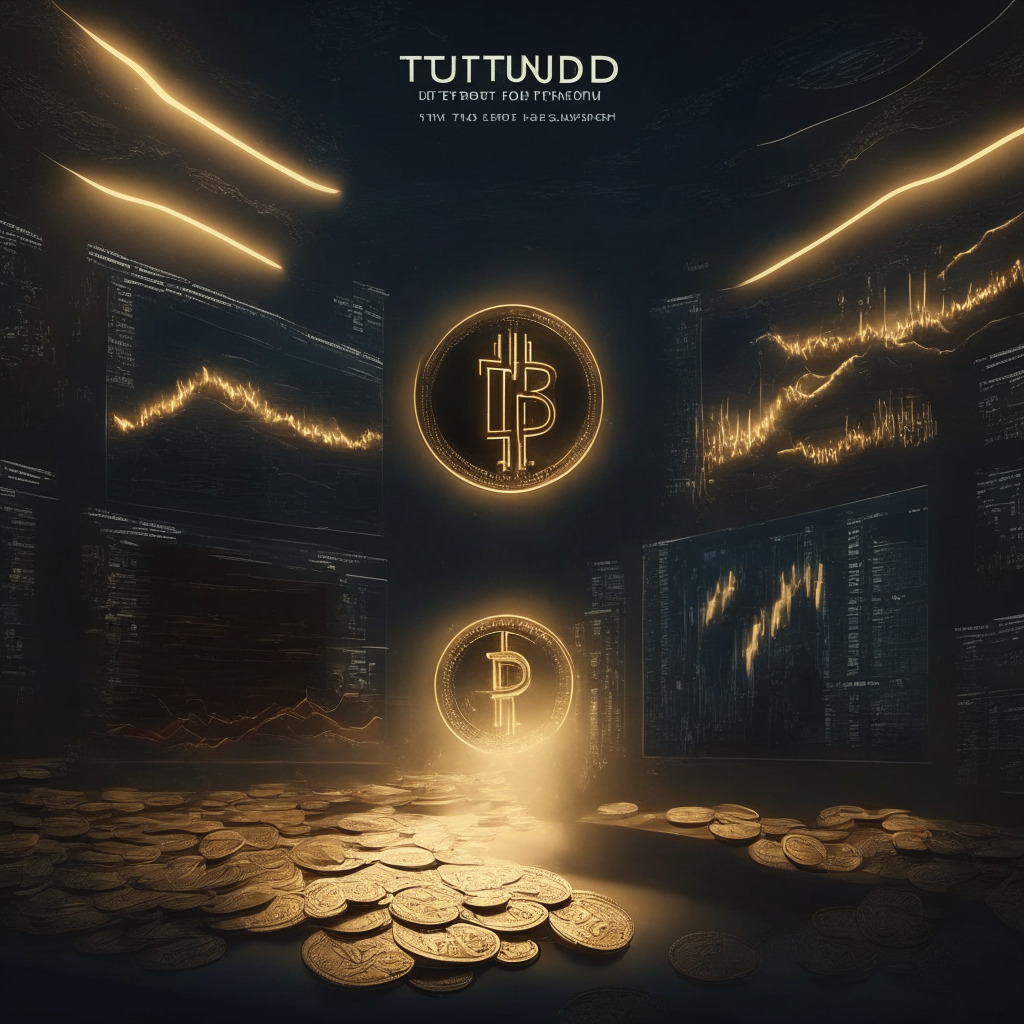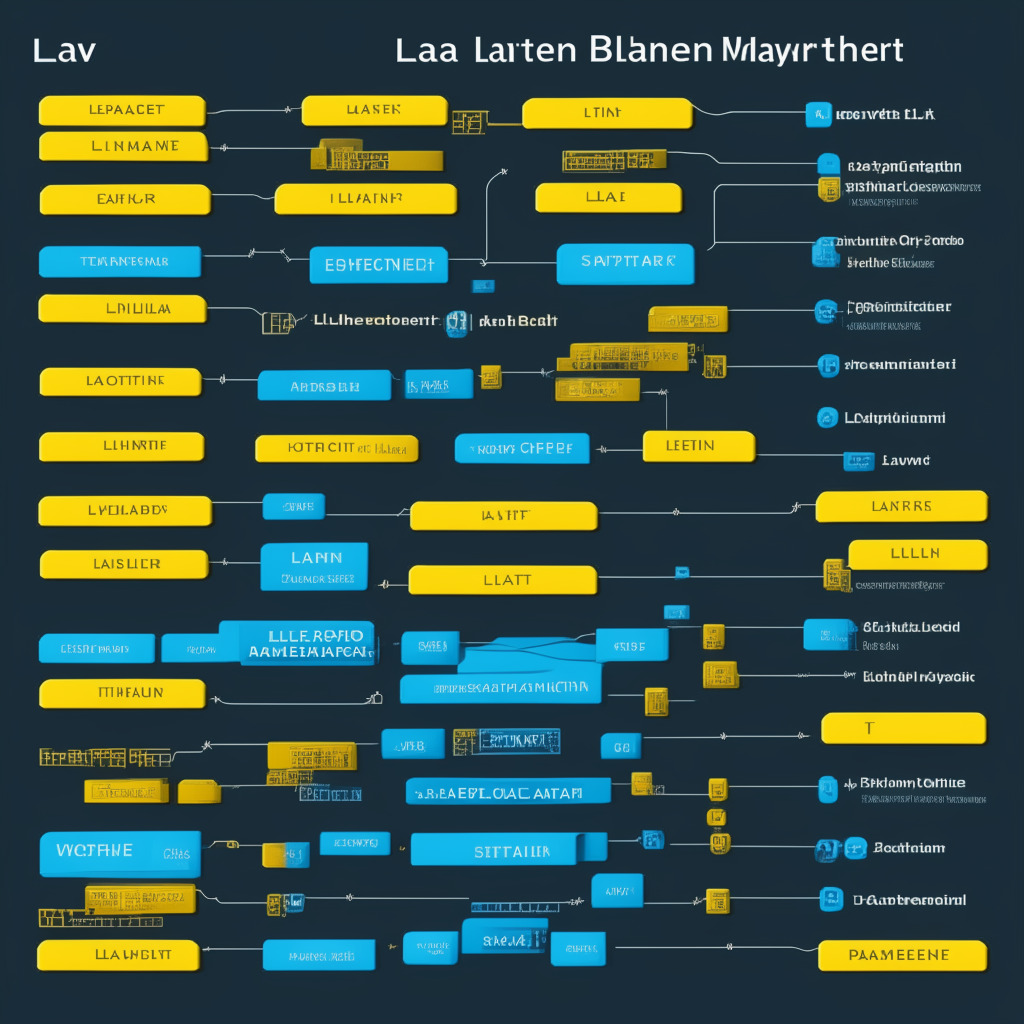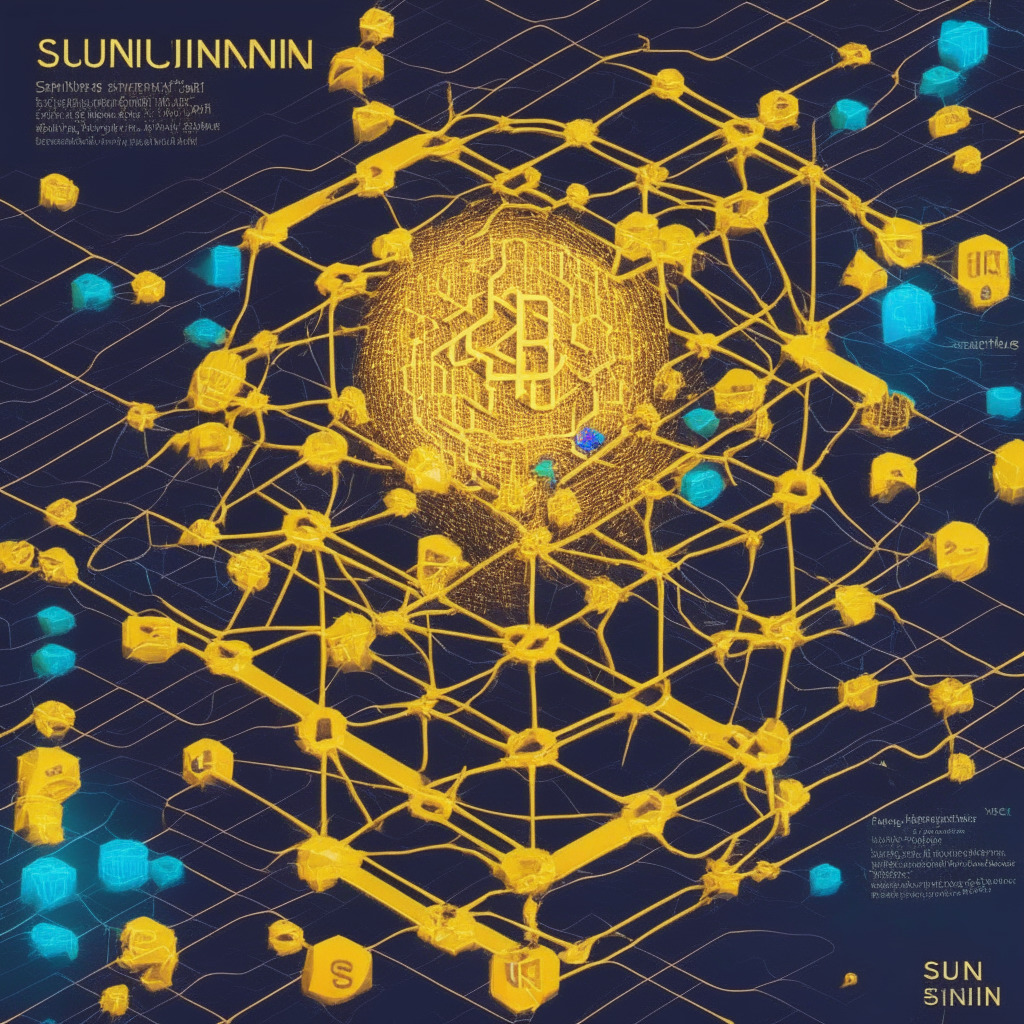After Prime Trust insolvency, traders are shorting stablecoin TrueUSD (TUSD) despite TUSD denying exposure to Prime Trust. TUSD’s Curve Pool reserves hit 61% and short bets continue to rise. Investors must carefully assess risks surrounding TUSD’s connection to Prime Trust and its ability to maintain its $1 peg before making decisions.
Search Results for: TrueUSD
Navigating Stablecoin Challenges: TrueUSD’s Resilience Amid Prime Trust Troubles
TrueUSD announced its TUSD stablecoin has no exposure to the troubled Prime Trust, which halted all fiat and crypto deposits and withdrawals. Despite a temporary halt in minting activities, TrueUSD maintains multiple partnerships and “USD rails” for continuity of service, highlighting the importance of stablecoin issuers’ resilience to disruptions and the need for transparency and safeguards within the digital asset space.
Depegging of TrueUSD: A Tale of Trader Opportunities, Liquidity Risks, and Crypto Market Stability
The recent depegging event of TrueUSD (TUSD) led to supply constraints and skyrocketed borrowing rates on Aave and Compound. The lack of liquidity in some stablecoins presents both potential profit opportunities and significant market risks. Informed and cautious approach is necessary when navigating these situations in the nascent crypto markets.
Unraveling the Paradox of Increased Decentralization: The Optimism Network’s Stride and Binance’s Unexpected Move
The Optimism network has launched its testnet version of a fault-proof system aimed at increasing the efficiency and decentralization of the Superchain. Typically reliant on centralized sequencers, the new system offers modular options to prevent fraud. However, co-founder of Ethereum, Vitalik Buterin, asserts the importance of user-submitted fraud proofs to maintain true decentralization.
Binance Axes BUSD Lending Services: A Setback or Smart Strategy?
“Binance is discontinifying its Binance USD (BUSD) lending services, with a full termination of BUSD support planned for 2024. The decision comes after issuer Paxos severed ties with Binance amid litigation with the U.S. Securities and Exchange Commission. Users are now urged to convert their BUSD to other currencies.”
Binance’s Zero-Fee Expansion: A Strategic Move or a Response to Regulatory Hurdles?
“Binance expands its zero-fee trading to Argentine, Brazilian, and South African currency spot trading pairs. This move is seen as an attempt to increase trading of prominent cryptocurrencies against mentioned fiat currencies, despite confronting legal and regulatory hurdles, especially in the U.S. and Europe.”
Binance’s Surprising Shift to Lesser-Known Stablecoins: Market Intrigue or Strategy Unfolded?
Coinbase CEO, Brian Armstrong, revealed that Binance traded a chunk of its USDC for another stablecoin. This reflects Binance’s increasing interest in newer stablecoins, despite market risks. With its turn towards the lesser-known FDUSD, Binance’s unusual decision indicates a notable trend within the crypto markets.
Techteryx Takes Over TUSD: A Significant Shift in Stablecoin Landscape or A Risky Gamble?
British Virgin Islands-based firm, Techteryx, announces readiness to take over full-operations of all offshore aspects of TUSD, the fifth largest stablecoin, including minting and redemptions, customer onboarding, and compliance from the previous manager, ArchBlock. Amidst high market capitalization of over $2.8 billion, this move casts significant implications.
The Rise and Uncertainty of Centralized Stablecoins: Balancing Transparency and Dependence
Centralized stablecoins, stabilizing their price against another asset like the U.S dollar, account for 75% of all transactions on centralized crypto exchanges, with TrueUSD (TUSD) and Tether’s USDT taking significant shares. However, amid growth, controversies and transparency issues pose challenges and risks, demonstrating the crypto market’s vulnerability. The future of such stablecoins depends on addressing these vulnerabilities and embracing transparency.
Chainlink’s Proof-of-Reserves: True Transparency or Illusion of Accountability?
Chainlink’s proof-of-reserves service promises to allow crypto custodians to directly monitor real-world assets on blockchains, increasing safety and transparency for DeFi users. However, the durability of this solution is questioned as the credibility of data depends on the source, possibly masking inadequate accounting practices and reinforcing trust issues in centralized entities.
Six Clovers and the Future of Decentralized International Payments: The Merge of eCommerce and Blockchain
“Six Clovers founded by ex-PayPal execs, announced the inception of the Versal Network on the Sui blockchain, aiming to improve speed and efficiency of cross-border transactions. Alongside high-speed transactions and instant processing, Sui offers 10 billion SUI tokens with 14% open for purchase by investors.”
Crypto in Crosshairs: Financial Turmoil at Prime Trust Ignites Regulatory Concerns
“Prime Trust, a crypto custodian, potentially faces takeover by the Nevada state due to significant financial struggles, including owing customers over $80 million it cannot cover. This raises concerns about the digital asset market’s financial health and spotlights challenges in maintaining a balance between promoting crypto-based innovation and ensuring financial safety.”
Trader’s $4M Short on TUSD: Analyzing Stablecoin Stability Amid Issuer Challenges
A trader took a $4m short position on stablecoin TrueUSD (TUSD) after its issuer temporarily halted mints and redemptions through banking partner Prime Trust. This highlights the importance of vigilance among cryptocurrency enthusiasts, as regulatory scrutiny and operational challenges can affect the value and stability of digital assets like TUSD.
BitGo-Prime Trust Deal Collapse: Impacts on Crypto Industry and Payment Partners
BitGo’s sudden cancellation of Prime Trust acquisition leaves the struggling company searching for alternative solutions amidst bankruptcy challenges, withdrawal suspensions, and legal disputes. The fate of Prime Trust remains uncertain, impacting the crypto market, customers, and partners.
Binance Boosts TUSD Popularity Amid Regulatory Challenges: Pros, Cons & Implications
Binance announces zero-maker fee promotion for stablecoin TUSD and extends BUSD promotion amidst regulatory issues. The exchange continues to support TUSD, showcasing its agility and adaptability in navigating complex cryptocurrency markets despite regulatory challenges.
Binance Expands Zero-Fee Trading Promotion: Legit Strategy or Desperate Move Amid Legal Woes?
Binance expands their zero-fee trading promotion to all TrueUSD (TUSD) trading pairs starting June 30th, despite facing numerous legal challenges and regulatory scrutiny. This strategic move aims to boost adoption of their stablecoin amidst increasing regulatory pressure.
Banq Bankruptcy Saga: Domino Effects, Legal Battles, and Crypto Industry Lessons
Banq’s bankruptcy filing amidst Prime Trust’s acquisition deal with BitGo has raised concerns over accountability and transparency in the crypto space. With TrueUSD and Haru Invest also affected, the industry must address safety and integrity challenges in the midst of a demanding regulatory climate.
Sui Blockchain: A Fast-Growing Contender or Just Another Whales’ Playground?
Sui, a Layer 1 blockchain, brings high-speed transactions, instant processing, and scalability to the crypto space. Its native programming language, Move, simplifies smart contract development for DeFi. Despite potential benefits, concerns arise over long-term sustainability, transaction costs, and wealth distribution among participants.
Crypto Exchange’s Battle with Regulations: Impact on Markets and Safety in Nigeria and Beyond
Nigeria’s SEC declared Binance Nigeria Limited as “illegal” and ordered operations to cease. This follows Nigeria passing the Finance Act 2023, imposing a 10% capital gains tax on digital assets. Binance faces ongoing lawsuits, highlighting challenges for crypto exchanges in adapting to changing regulatory landscapes and emphasizing the importance of vigilance and awareness for market stability.
Binance’s Mounting Troubles: SEC Charges, TUSD Minting Pause, and Massive Liquidations
Binance faces mounting troubles as TrueUSD (TUSD) minting via Prime Trust is paused, adding to the exchange’s woes after the SEC brought 13 charges against them. Despite this, TUSD ensures users that minting and redemption services will continue without disruption. Meanwhile, the crypto market experiences a massive liquidation amid unfavorable conditions.
Stablecoin Market Contraction: Implications for Crypto Liquidity and Recovery Prospects
The stablecoin market’s contraction for the 14th consecutive month signals a potential liquidity issue within the digital asset ecosystem. This decline may impact cryptocurrency prices, and analysts believe that sustained crypto market recovery might not occur until the stablecoin decline is curbed.
Binance’s Decline: Rival Exchanges Rise as Regulatory Scrutiny Intensifies
Binance’s market share in spot trading continues to decline, causing concern for its future and allowing rivals like OKX, Huobi, and Bybit to gain an advantage. Heightened scrutiny and regulatory action by US regulators have raised concerns about the safety of user funds on the platform.
Cetus IDO Hits Hard Cap in Seconds: Analyzing Market Demand and Concerns for Sui Mainnet
Cetus, a decentralized exchange and liquidity protocol, reached its hard cap target of 800,000 SUI tokens within hours of its IDO launch, receiving over 6 million SUI worth $6.85 million. This showcases strong demand for Cetus tokens and excitement surrounding the Sui mainnet launch, despite potential market volatility.
Binance LaunchPools Frenzy: Sui Token Craze vs Regulatory Caution in Crypto Landscape
The Binance LaunchPools event, featuring Sui tokens, raised $300 million and saw a retail frenzy reaching $3.8 billion. Meanwhile, meme cryptocurrency PEPE’s market cap surpassed $550 million, highlighting hype-driven investments. As the crypto landscape evolves, striking a balance between enthusiasm, caution, and regulatory compliance is crucial.
Mystery of the $405 Million TUSD Burn: Unraveling the Whys and Hows
An anonymous address recently burned 405 million TUSD (16.2% of its reserve) on the Tron network, sparking discussions in the crypto community. The incident’s origin involved transactions totaling $230 million from a Binance hot wallet and $175.5 million from a known “black hole” address. The massive TUSD burn raises questions about potential manipulative strategies in the cryptocurrency market.
Crypto Trading Volume Shift: Why Weekends Are Slowing Down and Weekdays Booming
Weekday trading volumes in the crypto industry have risen by 16%, while weekend trading volumes dropped by 10% due to the closure of Silvergate Exchange Network (SEN) and Signet, and changing U.S. regulations. However, weekend crypto demand remains strong, reflecting the market’s resilience.
Binance CEO Warns Tron Founder Over LaunchPool Sui Token: Whales vs Retail Users Conflict
The recent warning issued by Binance CEO Changpeng Zhao (CZ) to Tron founder Justin Sun […]

